 Petzlover
Petzlover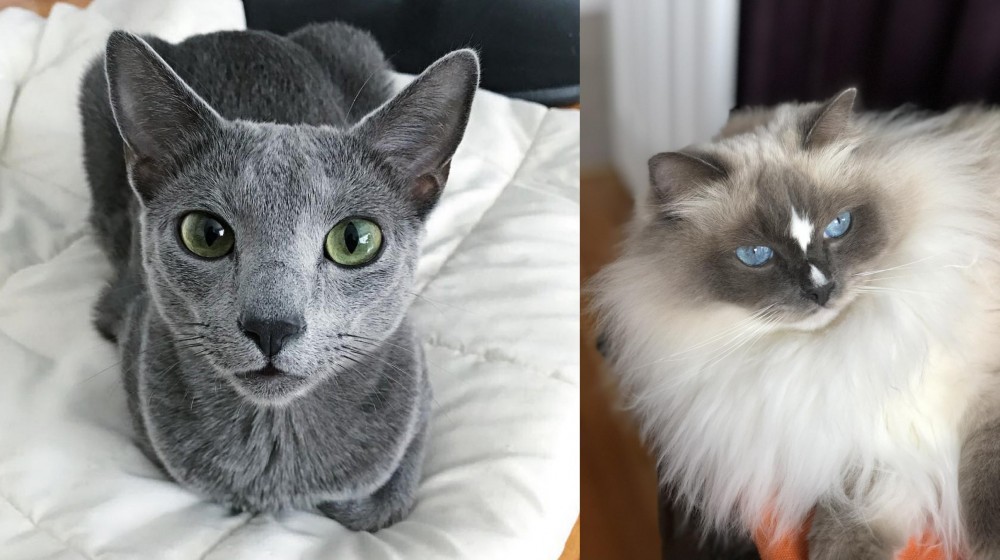 Blue Russian is originated from Russia but Ragdoll is originated from United States. Both Blue Russian and Ragdoll are having almost same weight. Both Blue Russian and Ragdoll has almost same life span. Both Blue Russian and Ragdoll has same litter size. Blue Russian requires Low Maintenance. But Ragdoll requires Moderate Maintenance
Blue Russian is originated from Russia but Ragdoll is originated from United States. Both Blue Russian and Ragdoll are having almost same weight. Both Blue Russian and Ragdoll has almost same life span. Both Blue Russian and Ragdoll has same litter size. Blue Russian requires Low Maintenance. But Ragdoll requires Moderate Maintenance
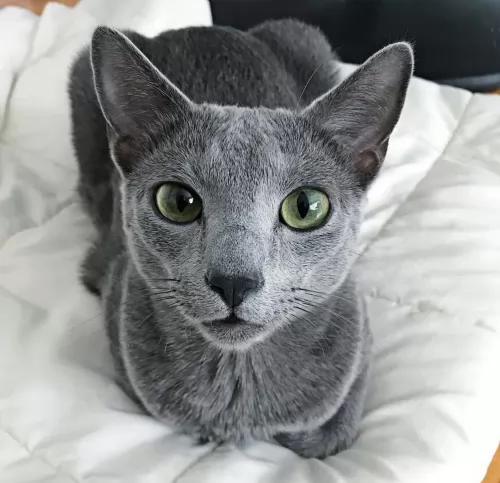 The Blue Russian is a rare cat and not much is known about its origins, but it is believed that the cat comes from northern Russia.
The Blue Russian is a rare cat and not much is known about its origins, but it is believed that the cat comes from northern Russia.
The Cat Fanciers Association believes that the cat descended from cats kept by Russian Czars. Research tells us that there is no mention of the Blue Russian until the 19th century. The Russia Blue made its first public appearance in 1875, being exhibited at London’s Crystal Palace as the ‘Archangel Cat’.
By 1912, the Russia Bue was given its own classification after its introduction to the USA in the early 1900s.
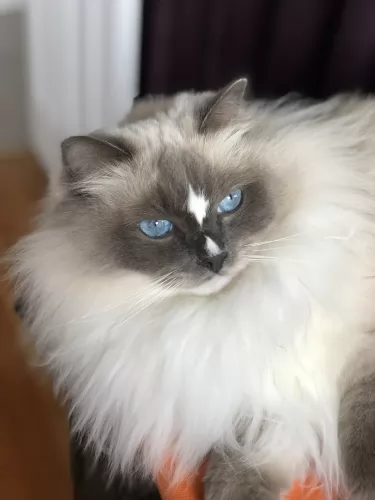 It was in the 1960s that a regular domestic longhaired cat with white fur produced several litters of cats. There was one litter where the kittens with a docile temperament, seemed to go limp when picked up.
It was in the 1960s that a regular domestic longhaired cat with white fur produced several litters of cats. There was one litter where the kittens with a docile temperament, seemed to go limp when picked up.
Anne Baker set out to start a breeding program and all Ragdolls are descended from Baker's cats. In fact, the cat credited as the original Ragdoll was a cat with the name Josephine, and Ragdolls are sometimes called ‘the daughters of Josephine.
Baker set up her own registry, the International Ragdoll Cat Association. The IRCA still exists, but another pair developed the Ragdoll standard that is accepted by major cat registries. Today. The biggest international Ragdoll breed club is the Ragdoll Fanciers' Club International.
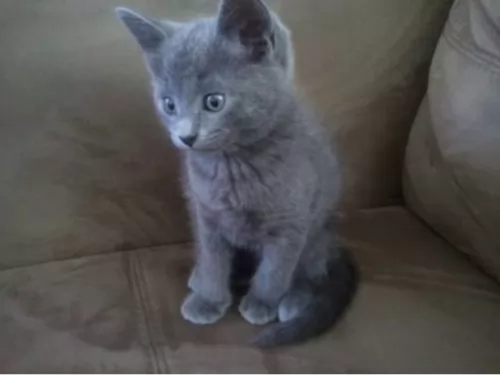 The Russian Blue is a medium-sized cat with a long, finely-boned boy. It is a slender cat, but he appears larger because of his dense double coat.
The Russian Blue is a medium-sized cat with a long, finely-boned boy. It is a slender cat, but he appears larger because of his dense double coat.
He weighs in the region of 3 – 6kg. In spite of the dense and luxurious short silvery coat, the cat doesn’t shed much. The coat can in fact be a silvery shade to a dark slate grey. The eyes are a beautiful green, the ears widely spaced and slightly rounded at the top.
The Russian Blue is a sweet-tempered cat who becomes attached to his human owner and who will even follow his owner much like a dog.
This particular cat breed may be quite shy, but he becomes social around his family members and may even be reluctant to share time with strangers.
He also doesn’t mind spending some time alone if you have to work. Curious and intelligent the Russian Blue is somewhat reserved but he makes a great companion as he is sensitive to his owner's moods.
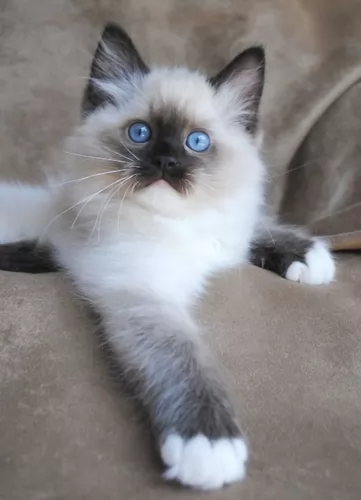 The beautiful Ragdoll cat is a large, heavy-boned cat. Sometimes they can be 9kg in weight. It has a soft, silky coat that can be semi-long to long.
The beautiful Ragdoll cat is a large, heavy-boned cat. Sometimes they can be 9kg in weight. It has a soft, silky coat that can be semi-long to long.
The cat has remarkable blue eye and the beautiful silky coat comes in several shades such as cream point, chocolate point, seal point, and others.
The ears are medium-sized and, the legs long and strong and the oval-shaped eyes are blue. The cat is known as a pointed breed, which means that the body is lighter in color than the points.
Ragdolls are casual, even-tempered, laid-back kind of cats. They are playful but not particularly energetic so you won’t find these cats leaping onto top perches such as what other cats do.
These docile cats love to be petted and pampered and carried around. It literally goes limp with pleasure at being loved and pampered by its human companions. He’s such a friendly cat who, much like a dog, will even greet you at the door and learn to play some games.
This amicable cat gets on well with children and other pets in the home, making a splendid family pet and he can even learn to walk on a leash.
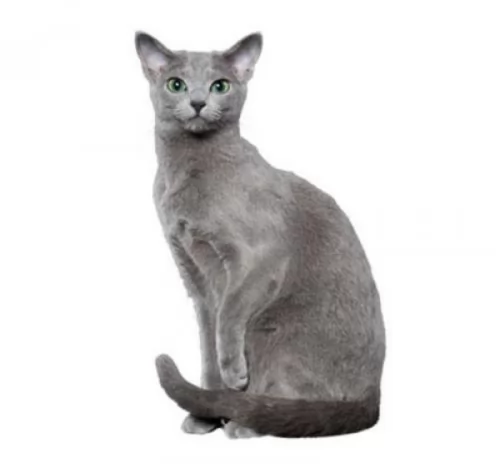 Russian blue cats are such intelligent creatures and he will require some mental stimulation because of it.
Russian blue cats are such intelligent creatures and he will require some mental stimulation because of it.
He loves mealtimes, but remember to not overfeed him as this shortens his lifespan.
He is a vocal cat and will tell you when he is hungry or he wants to play.
These cats don’t like too many changes so keep things the same for him.
When you try to keep your lovely Blue Russian happy, you’ll be rewarded by having a fantastic feline companion.
 The Ragdoll really is a splendid cat for any family that loves pets. They are such loving cats and adore being pampered by their human owners.
The Ragdoll really is a splendid cat for any family that loves pets. They are such loving cats and adore being pampered by their human owners.
These cats get on well with children and other pets, and because they are such mild-mannered cats, you never find a Ragdoll striking out in anger. That is why it is so important that children be taught kindness and gentleness with animals like the Ragdoll and not to take advantage of its good nature.
Playful and entertaining, the Ragdoll is bursting with his own unique personality – a super feline companion for the whole family.
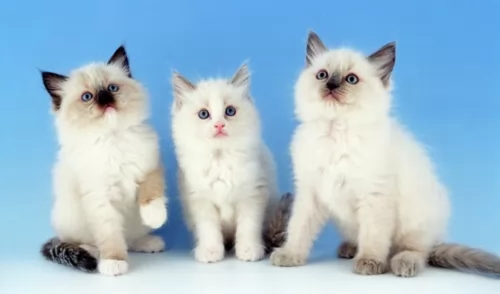 All cats, whatever the breed, can succumb to any one of the many cat diseases there are. A high-quality diet, a loving, caring lifestyle, the appropriate vaccines and parasite treatment can all help to keep your Ragdoll as happy and healthy as possible.
All cats, whatever the breed, can succumb to any one of the many cat diseases there are. A high-quality diet, a loving, caring lifestyle, the appropriate vaccines and parasite treatment can all help to keep your Ragdoll as happy and healthy as possible.
Ragdolls are generally healthy cats but you may want to look out for bladder stones. Another disease to watch for is a heart condition known as hypertrophic cardiomyopathy. This heart disease causes thickening of the heart muscle.
While the disease is usually found in older cats, there is also a juvenile form that affects younger cats, and often young Ragdolls.
Sometimes there aren’t symptoms, and if your cat has labored breathing, loses his appetite or has vomiting, you may need to get your Ragdoll to the vet who will listen to his heart for abnormalities.
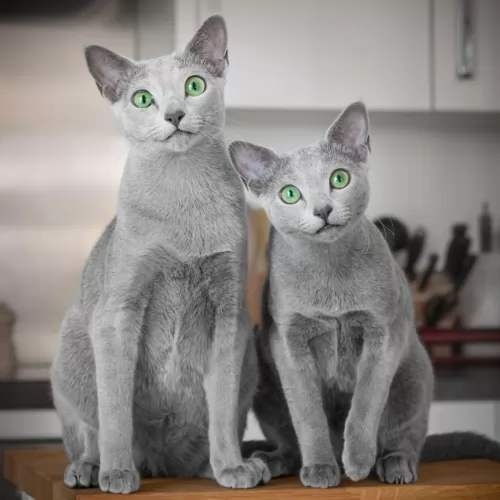 Part of caring for a cat as a responsible pet owner comes from feeding your pet. The Russian Blue is a cat that enjoys his food so you will have to look out for overfeeding.
Part of caring for a cat as a responsible pet owner comes from feeding your pet. The Russian Blue is a cat that enjoys his food so you will have to look out for overfeeding.
A cat that is overweight can start developing joint problems and diabetes. Rather stick to scheduled meals so that you can know exactly what your feline pet is getting. Such a beautiful cat needs the best food there is to keep the coat shiny and healthy and to prevent illness.
Always read the food labels to ensure the best ingredients and the right portion sizes. Make sure your cat gets food that is meat protein-rich as a cat is a carnivore.
Water is another important part of your Blue Russian’s diet. Fresh cool water should be available for your cat night and day. Water bowls are good but a water fountain is a tantalizingly attractive way for your pet to be attracted to drinking more water.
Make sure that you rake up all your cat’s droppings from the litter box every day as the Russian Blue is a hygienic cat and wants a clean litter box. Make sure the litter box is in a nice quiet spot for your cat.
The cat has a dense coat but isn’t a heavy shedder and requires very little grooming.
Ensure a decent bed for your Bombay cat. Any soft cat bedding will do, and while some cats like a simple flat mattress-type bedding arrangement, other cats like the idea of getting into a bed that provides some privacy.
You just have to find yourself a decent pet shop because when you do, you’ll find a host of soft, warm, fully washable blankets and pillows for your pet. Once you’ve decided on the right bed and a nice quiet spot, your cat will have a complex issue sorted out as some cats can be fussy with their sleeping arrangments.
Make sure your cat is neutered or spayed to avoid unwanted kittens. Neutering offers health benefits, reducing the risk of different cancers. Your cat also no longer has the desire to fight over mates and territory.
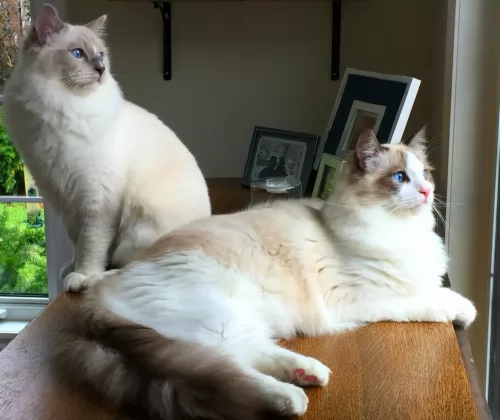 Even though the Ragdoll’s coat is long and silky, it’s the kind of coat that doesn’t require too much maintenance. Certainly, you’ll want to comb and brush it once a week.
Even though the Ragdoll’s coat is long and silky, it’s the kind of coat that doesn’t require too much maintenance. Certainly, you’ll want to comb and brush it once a week.
The other grooming he requires is regular nail trimming.
Understand your Ragdoll’s eating habits. Remember cats are carnivores and this means that their diet has to be made up of meat. Food puzzles are great for these cats but whatever snacks and treats you give your Ragdoll, make sure that they are healthy for a cat and don’t give your cat digestive problems.
Provide your Ragdoll with a litter tray and make sure to remove the feces every single day.
Cats are prone to periodontal disease, but while it has become the latest trend to brush your pet’s teeth, this can be upsetting and traumatic for a pet. A good diet can help to keep teeth healthy. Your vet can look inside your pet's mouth to see if any teeth need attending to.